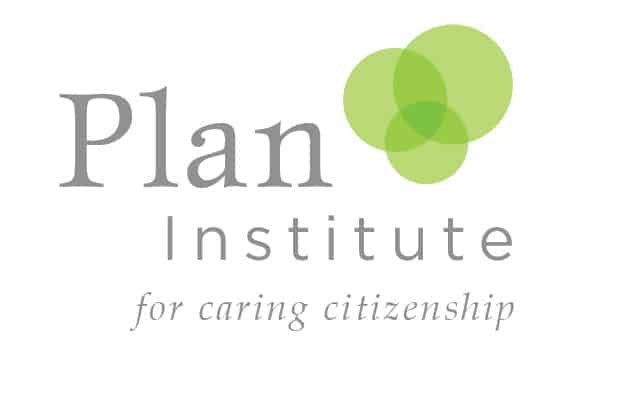For over 20 years, PLAN has been helping people to create their own personal support networks. These networks are usually made up of family and friends, bringing together those who are already in their lives, as well as helping people to make new connections.
We are realizing now more than ever how important relationships and support networks are in order for us all to live a good and healthy life. For those who are vulnerable to social isolation, these relationships are even more crucial.
The following paragraphs illustrate how personal networks make a difference in the lives of the person at the centre, as well as to the people surrounding them.
Emotional Support
This is probably the area most us of think of when it comes to friends and families. Most of us cannot imagine life without our friends to share our joys with when times are good and to lean on when times on tough. PLAN’s personal networks have been great sources of encouragement for the people at the centre of the networks. There is nothing like having a group of people who believe in you when it comes to gathering up the courage to take on a new challenge. Our networks have been bolsters for folks bracing themselves to start a new job, go back to school or even to simply meet a new person. The emotional support of network members has been the catalyst that has liberated folks to see themselves as competent and capable of achieving their dreams.
We have also seen our networks walk with people through traumas such as substance abuse, episodic mental illness and personal loss. For example when George’s mother became ill with cancer his network knew he would need a lot of support in preparing for her death. They collaborated with George to create a video of his mother’s life. When she did pass away this amazing group of men and women adopted the motto ‘never alone.’ And indeed George was never alone for the first month after his mother’s passing. A few months after his mother’s death George was able to say, “My mother has died and I miss her. But with the help of my network I’m doing ok.”
Practical Assistance
Most families in preparing for the future are acutely aware of the innumerable things, small and large, they do on behalf of their relative. These can range from filing income tax to buying the best fitting brand of underwear. It is often these personal details that families are the most uncomfortable leaving to individuals who are paid to support their relative. Personal network members at PLAN provide a vast array of practical support to their friends. Network members are the ones who notice if the coat is getting threadbare and make a quick trip to the mall. They help write Christmas cards, make sure the neighbours are happy and the doctor’s instructions are followed. They have even been known to clean the toaster and get the cat to the vet. In short, while we all know personal network can never replace families, they are the next best thing.
Staying Healthy
One of the issues families are most concerned about in thinking about the future is the health of their relative. Painstaking and important work is often done by a family to make sure all the details of medical treatment over the years are documented and shared. Clearly having a network member in the know is critical to communicating with the medical establishment to ensure the best treatment is received.
There is however another often overlooked role that personal networks play in safeguarding the health of the person at the centre. There is a burgeoning field of research called pycho-neuro-immunology. This field explores the mind body connection in health. The results of this research are conclusively pouring in. When we have a supportive social network we all live longer, get sick less often and heal more rapidly if we do get sick. The old maxim holds true: a good friend is the medicine of life. Ensuring there are involved friends and loved ones is crucial task for any family worried about their relative’s health in the future.
Wealth and Social Capital
Planning for the future always involves some discussion about financial resources. Certainly having adequate income is a critical element in anyone’s future. What we have discovered at PLAN though, is that money alone can’t buy happiness or success. Of course we knew this when we began our work, but initially the seductive power of finance had us thinking that wills and estates were the most important things to be addressing in future planning. They seemed so concrete and practical and frankly easy in comparison with the intangible world of relationships. Interestingly, the concept of social capital has recently emerged and it is beginning to put value on the often difficult to measure assets of relationships.
Social capital is both the number of relationships we have and the trust, reciprocity and shared values in those relationships. Our supply of social capital directly impacts our choices and opportunities. Research about social capital is finding among other things, that when we have a good stock of it our job prospects increase, our ability to learn is improved and our safety is enhanced. Alternatively, when individuals or groups are found to be lacking in social capital their locus of control is diminished and clientelism increases. Social capital could be considered the most important source of wealth a person with a disability has. Creating a personal network represents a strategic and focused way for families and individuals to increase their social capital.
Contribution Equals Citizenship
It is fair to say that the term citizenship does not often come up when working with families and individuals to plan for the future. Instead they use phrases like doing something meaningful, having a reason to get up, being valued and making a contribution. When you think about it, aren’t giving, contributing, making a difference all at the very heart of citizenship? At PLAN we believe contribution equals citizenship.
People with disabilities along with other marginalised people have made enormous strides in securing their rights in the past two decades. The battles won, the laws passed and the policies written have all been extremely important on the road to citizenship. And perhaps for people with disabilities they are half way down the road. It is the other half of the path to citizenship, not rights but obligations or contributions, that needs to be traveled now.
Relationships are the ticket to the contribution side of the journey to citizenship. As seen above, social capital can certainly help to secure employment if that is the main path to contribution. But there are many other unique and crucial contributions that people with disabilities have to make. Time and again network members tell us that their friendship with the person at the centre of the network contributes to them seeing their life more meaningfully. They say things like, “Her presence grounds me. It is a real gift since I get so caught in the doings of life.” And, “He reminds me that we all have needs for each other that we don’t even realise.” Network members use words like inspiration, courage and creativity when they are speaking about what they receive from their relationships with people with disabilities.
Someone once said vocation is where our deep gladness and the world’s deep hunger meet. Surely most of us are hungry for meaning in our lives, surrounded as we are by today’s culture of individualism and greed. The contributions of people who have been labeled as disabled have never been more needed. Providing the opportunities for these contributions to be made by ensuring a personal network of friends is there to receive them is one of the most profound legacies a future plan can create. For the people at the centre of a personal network, contribution of their unique gifts equals the living of a life of meaning.
For the rest of us, the privilege of receiving these gifts equals an opportunity to become our most human.
For more information about PLAN‘s networks, click here.
If would like to learn more about how to use PLAN’s model in your own community, see our self-paced Personal Support Network Facilitation online course.
These paragraphs are an excerpt from the story “You Can Count on Us” by Vickie Cammack. You can download and read the original story in its entirety here.

